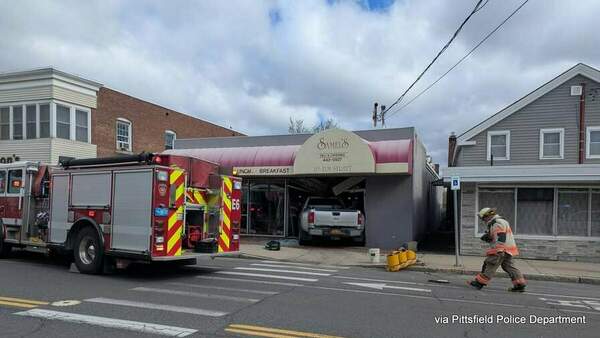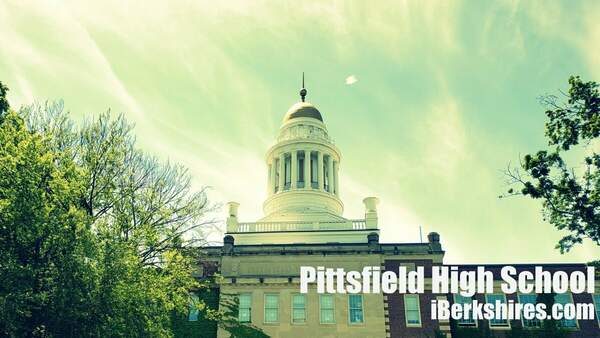Op-Ed: If Trump Really Wants to Help Working People He Won't Kill This Federal Agency
 |
The Consumer Financial Protection Bureau was created to protect regular people from abusive banks and other businesses. Isn't that what Trump said he wants to do?
When a bunch of billionaires tell you they know what's best for you, hang onto your wallet. Over the past few weeks, Republican politicians and billionaires have come out swinging with lies about the Consumer Financial Protection Bureau, hoping they can pave the way to "delete" the agency. But if you have a checking account, credit card, mortgage, or student loan, you might want to know what it could mean for you if the CFPB disappears. That's the dangerous promise of Project 2025.
Suppose you take out a car loan with Wells Fargo. Month after month you make your payments, but the bank messes up. Maybe they piled on fees you didn't owe or charged you the wrong interest rate. On their end, it looks like you've fallen behind on your payments, so they repossess your car. Now you can't get to work or take your kids to school. What are your options? You can't afford to sue. The police won't help. Before the CFPB, about all you could do was reach out to the bank's customer service and beg them to solve the problem, get left on hold, transferred from department to department, and end up nowhere. That was it — until the CFPB.
That's not a hypothetical. The CFPB received thousands of complaints that Wells Fargo had unlawfully repossessed cars and wrongfully foreclosed on homes. Wells Fargo illegally injured the owners of more than 16 million accounts — you may have been one of them. That's where the CFPB comes in. The agency took on the giant bank, stopped the repos, and ordered the bank to pay back more than $2 billion to those customers who had been wronged. No need to file a lawsuit. No need to spend hours on the phone. That's the power of having a cop on the beat.
While CEOs and right-wing think tanks like the Heritage Foundation try to get rid of the CFPB, it's worth remembering that the agency didn't appear out of thin air. The CFPB was created in 2010 in the aftermath of a huge cheating scandal that led to the 2008 housing crash. Shady lenders were tricking and trapping people with complicated mortgages that eventually crashed our economy and cost millions of people their homes. In "never again" mode, Congress created the CFPB as an independent agency with the power to stand up to giant corporations intent on cheating American consumers. Congress even funded the CFPB through the Federal Reserve to insulate it from everyday partisan politics. And it worked: The agency set standards so that people didn't get fooled, and those rules drove the seedy, fly-by-night companies out of our markets.
In the years since the mortgage crash, the CFPB has taken on aggressive junk fees that make price comparisons impossible. When servicemembers and veterans were being tricked into paying interest rates that surged up to 200 percent on pawn loans, the CFPB beat back the predators. And when it became clear that some medical debt collector companies were double billing patients or even charging patients for services they never received, the agency stepped up to try to right those wrongs.
Navient, one of the companies that doles out student loans, exploited students, lied to borrowers, overcharged service members, and conspired with fraudulent for-profit schools to trick students into taking on more loans they couldn't repay. In September, the CFPB delivered over $100 million in relief to Americans and permanently blocked Navient from the federal student loan system. Without the CFPB, Navient would probably still be cheating students.
The election made clear that working people want the government to unrig the economy. The CFPB is doing that work — and that's exactly why these billionaire CEOs don't want the agency around. When the CFPB stops a big bank from cheating you, that's one less chunk of change that goes into its pockets. These CEOs have made big political donations hoping to buy a Congress and a president who will "delete" the agency.
For years, when big banks would say "jump," too many politicians would ask, "How high?" Trump promised change. He pledged to cap credit card interest rates at 10 percent — it will take a strong CFPB to make that happen. He promised to rein in the influence of big tech — the CFPB is tackling that right now. He promised to make government work better for working people — the mission the CFPB delivers on every day.
Trump's first big decision on the CFPB will be to settle on a director — someone who will help the CEOs try to destroy the agency or someone who will keep the CFPB true to its mission to unrig the system. Will Trump decide to stand up to giant corporations to help the workers who voted for him or will he cower to the corporate billionaires? We should know soon.
This op-ed also ran in The Boston Globe on Dec.11, 2024. Warren helped create the CFPB before she was elected to Congress.
Tags: Warren,















